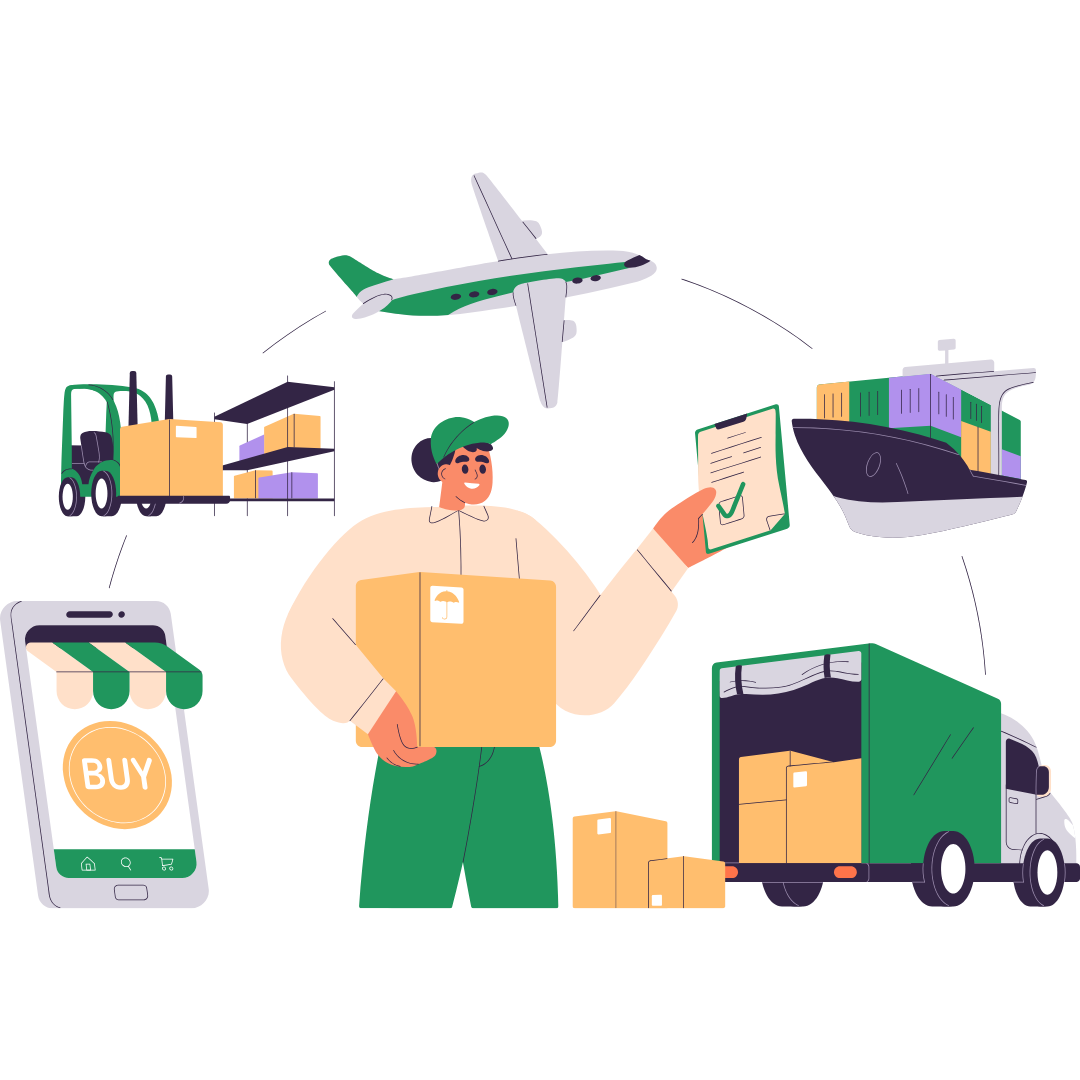Other Industries
Automotive CRM
An Automotive CRM (Customer Relationship Management) is a software tool designed for automotive dealerships and service providers to manage customer relationships, streamline sales, and enhance customer service. Key features include:
- Customer Data Management: Centralized customer profiles, including purchase and service history.
- Lead and Sales Management: Tracks leads, manages the sales pipeline, and integrates financing tools.
- Marketing Automation: Targeted campaigns through email, SMS, and social media.
- Service Scheduling: Online booking and reminders for maintenance.
- Customer Communication: Multi-channel communication (email, SMS, calls).
- Analytics and Reporting: Dashboards for performance insights and trend analysis.
- Integration: Syncs with inventory, DMS, and accounting systems.
Benefits include improved customer retention, increased sales, enhanced operational efficiency, and better customer service.
BPO CRM
A BPO CRM (Business Process Outsourcing Customer Relationship Management) system is a tool designed to help BPO companies manage and improve their customer interactions and relationships. It facilitates the efficient handling of customer support, sales, marketing, and other outsourced services, streamlining operations, and enhancing customer satisfaction.
Key Features of a BPO CRM:
-
Customer Data Management: Centralized database of customer profiles, including interaction history, preferences, and service needs.
-
Multi-channel Support: Integrates communication across various channels like email, phone, chat, social media, and SMS, enabling a seamless customer experience.
-
Lead and Opportunity Management: Tracks leads, sales opportunities, and follows up on potential business from clients, ensuring no opportunity is missed.
-
Ticketing and Case Management: Organizes customer queries, complaints, and service requests into tickets, helping agents resolve issues efficiently.
-
Automation and Workflow: Automates repetitive tasks, such as case assignments, follow-ups, and notifications, enhancing team productivity.
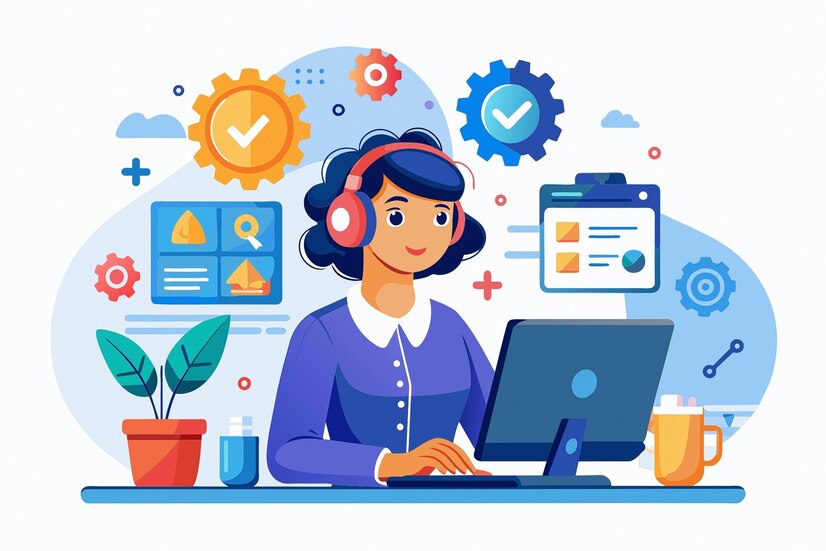
Banking CRM
A Banking CRM (Customer Relationship Management) system is a specialized software tool designed to help banks and financial institutions manage and improve their interactions with customers. It focuses on enhancing customer satisfaction, streamlining operations, and increasing sales and retention within the banking sector.
Key Features of a Banking CRM:
- Customer Data Management: Centralized customer profiles, including personal details, transaction history, account balances, and preferences.
- Lead and Opportunity Management: Tracks leads from various channels (e.g., website, branch visits) and manages cross-selling or up-selling opportunities for products like loans, credit cards, or insurance.
- Multi-channel Communication: Facilitates customer interactions across phone, email, chat, social media, and in-branch visits for seamless communication.
- Customer Support & Case Management: Manages customer queries, complaints, and requests efficiently, ensuring prompt resolutions.
- Personalized Services: Offers tailored recommendations for products and services based on customer behavior, needs, and transaction history.
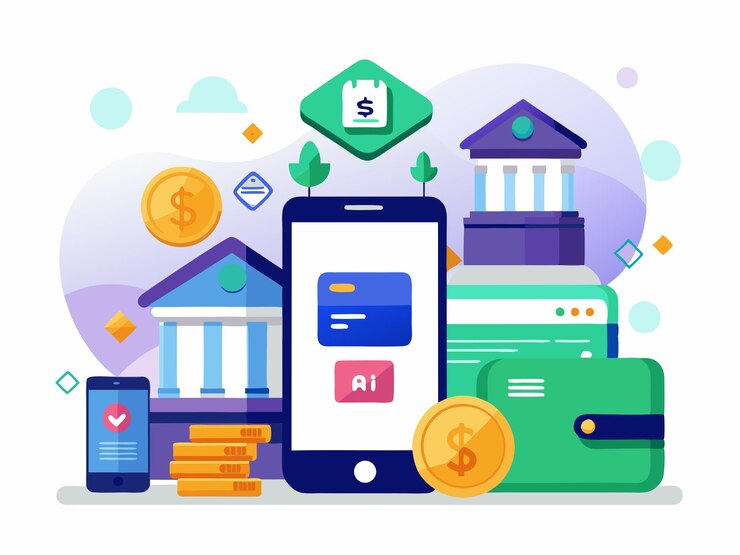
Education CRM
An Education CRM (Customer Relationship Management) system is a software tool designed for educational institutions (like schools, colleges, universities, and online learning platforms) to manage interactions with students, parents, and prospects. It helps streamline admissions, communication, student services, and marketing efforts, ultimately improving student engagement and institutional efficiency.
Key Features of an Education CRM:
-
Student Data Management: Centralized database of student profiles, including personal details, academic history, preferences, and enrollment status.
-
Lead and Enrollment Management: Tracks prospective students, manages inquiries, and streamlines the admission process from initial interest to enrollment.
-
Communication Tools: Facilitates multi-channel communication (email, phone, SMS, chat, and social media) to engage students, parents, and alumni.
-
Marketing Automation: Automates marketing campaigns, including email newsletters, event invitations, and personalized content for prospective and current students.
-
Course and Program Management: Helps track student interest in specific courses or programs and provides personalized recommendations based on their profiles.

Financial CRM
A Financial CRM (Customer Relationship Management) system is a specialized software tool designed for financial institutions like banks, investment firms, insurance companies, and financial advisors to manage and optimize their relationships with clients. It focuses on improving client engagement, enhancing service offerings, and streamlining operations within the financial services sector.
Key Features of a Financial CRM:
-
Client Data Management: Centralized storage of client information, including financial details, investment preferences, risk profiles, transaction history, and communications.
-
Lead and Opportunity Management: Tracks potential clients, manages leads, and identifies sales opportunities for financial products like loans, insurance, or investment services.
-
Financial Planning Tools: Provides tools to help advisors and institutions create personalized financial plans, investment strategies, and wealth management solutions.
-
Multi-channel Communication: Facilitates communication with clients through phone, email, social media, SMS, and chat for seamless interactions.
-
Client Segmentation: Allows segmentation of clients based on factors like financial goals, investment preferences, age, income, and risk tolerance for targeted communication.
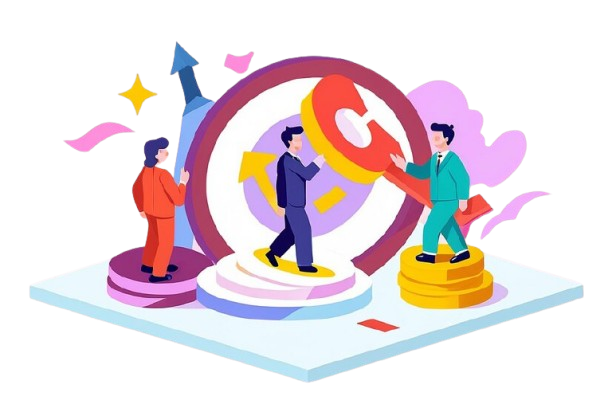
Health Care CRM
A Healthcare CRM (Customer Relationship Management) system is a specialized software tool designed for healthcare organizations like hospitals, clinics, private practices, and health insurance companies to manage interactions with patients, healthcare providers, and other stakeholders. It aims to enhance patient care, streamline operations, and improve patient engagement and retention.
Key Features of a Healthcare CRM:
-
Patient Data Management: Centralized storage of patient information, including medical history, treatment records, appointment details, and personal preferences.
-
Appointment Scheduling and Reminders: Allows patients to book appointments online, while automated reminders reduce no-shows and improve scheduling efficiency.
-
Patient Communication: Multi-channel communication tools (email, SMS, phone, chat) to send reminders, follow-up messages, health tips, and treatment updates.
-
Lead and Referral Management: Tracks new patient leads, manages referrals from other providers, and nurtures prospective patients through targeted marketing.
-
Personalized Care Plans: Develops individualized care plans based on patient health history, preferences, and specific treatment needs, fostering better care coordination.
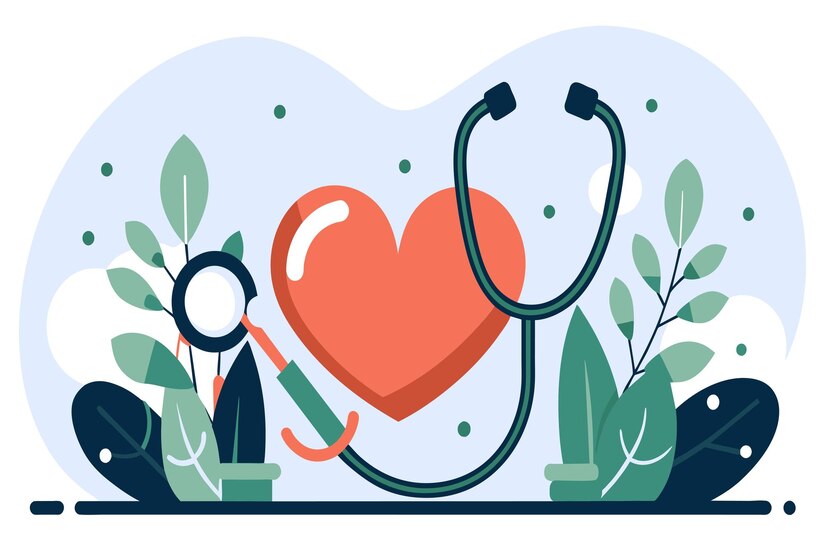
Hotel CRM
A Hotel CRM (Customer Relationship Management) system is a specialized software tool designed for the hospitality industry to manage guest interactions, streamline operations, and enhance the overall guest experience. It helps hotels, resorts, and other accommodation providers improve customer engagement, increase bookings, and manage guest relationships more efficiently.
Key Features of a Hotel CRM:
-
Guest Data Management: Centralized storage of guest profiles, including personal information, booking history, preferences, special requests, and loyalty program participation.
-
Booking and Reservation Management: Tracks guest reservations, check-ins, check-outs, and cancellations, while offering easy integration with property management systems (PMS) and online travel agencies (OTAs).
-
Personalized Communication: Sends automated, personalized messages to guests before, during, and after their stay (e.g., booking confirmations, pre-arrival emails, thank-you notes, and special offers).
-
Loyalty and Rewards Programs: Manages guest loyalty programs, tracks points or rewards, and sends targeted offers to repeat guests to encourage return visits.
-
Guest Feedback and Surveys: Collects feedback from guests through surveys, online reviews, and satisfaction forms, helping improve service quality.
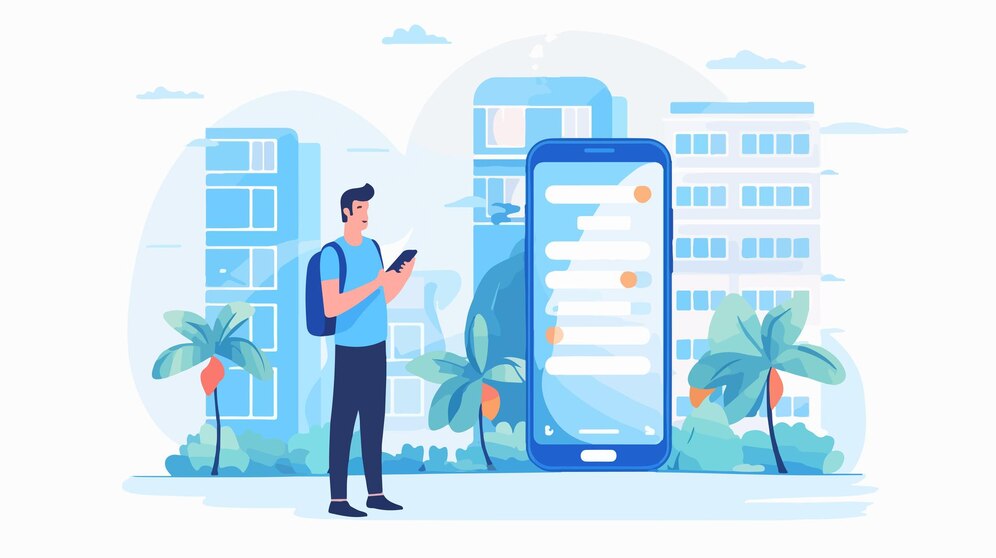
Hotel CRM
A Hotel CRM (Customer Relationship Management) system is a specialized software tool designed for the hospitality industry to manage guest interactions, streamline operations, and enhance the overall guest experience. It helps hotels, resorts, and other accommodation providers improve customer engagement, increase bookings, and manage guest relationships more efficiently.
Key Features of a Hotel CRM:
-
Guest Data Management: Centralized storage of guest profiles, including personal information, booking history, preferences, special requests, and loyalty program participation.
-
Booking and Reservation Management: Tracks guest reservations, check-ins, check-outs, and cancellations, while offering easy integration with property management systems (PMS) and online travel agencies (OTAs).
-
Personalized Communication: Sends automated, personalized messages to guests before, during, and after their stay (e.g., booking confirmations, pre-arrival emails, thank-you notes, and special offers).
-
Loyalty and Rewards Programs: Manages guest loyalty programs, tracks points or rewards, and sends targeted offers to repeat guests to encourage return visits.
-
Guest Feedback and Surveys: Collects feedback from guests through surveys, online reviews, and satisfaction forms, helping improve service quality.

General CRM
A General CRM (Customer Relationship Management) system is a versatile software tool designed to help businesses of all sizes and industries manage their interactions with customers, prospects, and leads. It centralizes customer data, streamlines workflows, and improves communication, aiming to enhance customer satisfaction, drive sales, and increase operational efficiency.
Key Features of a General CRM:
- Customer Data Management: Centralizes customer information, including contact details, purchase history, preferences, and interactions, allowing for easy access and analysis.
- Lead and Opportunity Management: Tracks leads and sales opportunities from initial contact to conversion, helping businesses manage sales pipelines effectively.
- Sales Automation: Automates sales tasks, including follow-up emails, reminders, and pipeline updates, allowing sales teams to focus on closing deals.
- Marketing Automation: Automates marketing campaigns, such as email marketing, social media outreach, and targeted promotions, based on customer segmentation and behavior.
- Customer Support & Service Management: Manages customer service requests, complaints, and inquiries through ticketing systems, ensuring timely resolutions and improving customer satisfaction.
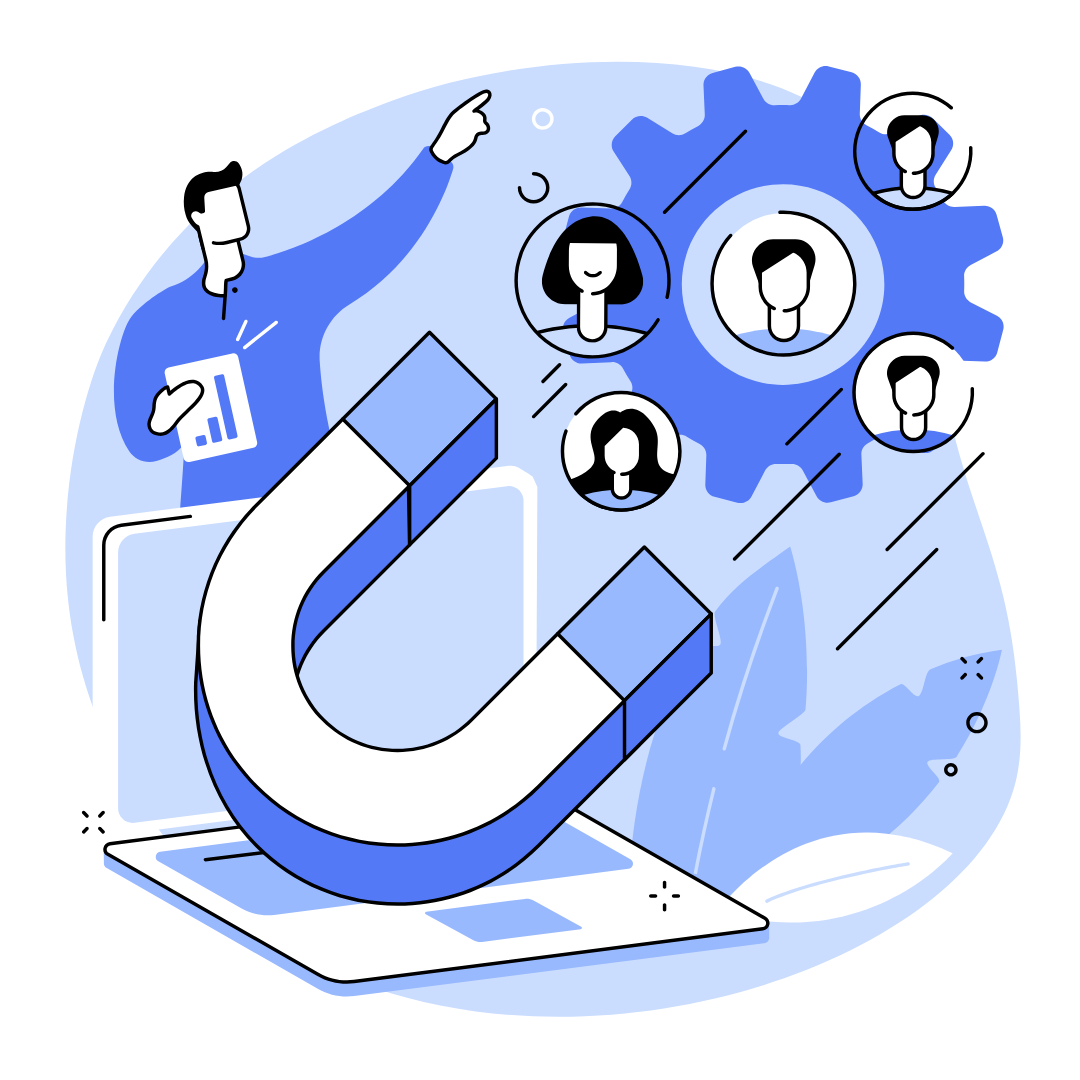
Import & Export CRM
An Import & Export CRM (Customer Relationship Management) system is a specialized CRM tool designed for businesses involved in international trade. It helps manage relationships with suppliers, customers, logistics partners, and other stakeholders across the global supply chain. The CRM system streamlines processes such as lead management, order tracking, communication, and compliance, aiming to enhance efficiency, improve customer satisfaction, and drive business growth in the import/export sector.
Key Features of an Import & Export CRM:
-
Supplier and Customer Management: Centralizes contact information, contracts, order histories, and communication records for both suppliers and customers in the import/export process.
-
Lead and Opportunity Management: Tracks leads from international markets, manages sales opportunities, and facilitates the conversion of prospects into customers.
-
Quotation and Order Management: Generates and manages quotes, purchase orders, sales orders, and invoices, ensuring smooth transactions and timely deliveries.
-
Shipping and Logistics Tracking: Integrates with logistics systems to track shipments, manage shipping schedules, and provide real-time updates on the status of imports/exports.
-
Multi-channel Communication: Supports communication with clients, suppliers, and partners through multiple channels, including email, phone, chat, and social media, to ensure timely responses and smooth operations.
These CRM platforms help businesses involved in import and export better manage their operations, streamline workflows, and ensure compliance with international trade laws.

IT CRM
An IT CRM (Information Technology Customer Relationship Management) system is a CRM designed specifically for IT companies, including software developers, managed service providers (MSPs), IT consultants, and tech support businesses. It helps streamline customer interactions, manage client projects, and improve sales and support services within the technology industry.
Key Features of an IT CRM:
-
Client Data Management: Centralizes client information, including contact details, service contracts, project history, support tickets, and communication logs, for easy access and management.
-
Project and Task Management: Tracks IT projects, deadlines, deliverables, and milestones, ensuring projects are completed on time and within budget.
-
Helpdesk and Support Ticketing: Manages IT support tickets, issues, and resolutions. It allows IT teams to track and respond to technical support requests efficiently.
-
Lead and Sales Opportunity Management: Tracks potential leads and sales opportunities, managing the sales pipeline from initial contact through to project or service delivery.
-
Automated Workflows: Automates routine tasks such as sending quotes, invoicing, client follow-ups, and ticket assignment to reduce manual work and improve efficiency.
An IT CRM helps IT businesses improve operational efficiency, deliver better customer service, and increase revenue by improving the management of both customer relationships and internal workflows.

Jewelry CRM
A Jewelry CRM (Customer Relationship Management) system is a specialized CRM tool designed for businesses in the jewelry industry, such as jewelers, designers, and retailers. It helps jewelry companies manage customer interactions, sales, inventory, marketing, and customer service more effectively, leading to enhanced customer relationships, increased sales, and improved operational efficiency.
Key Features of a Jewelry CRM:
-
Customer Data Management: Stores detailed customer profiles, including purchase history, preferences (e.g., metal, gemstones, styles), and special requests. This data helps personalize future interactions.
-
Sales and Lead Management: Tracks sales opportunities from the first point of contact to purchase, helping sales teams manage leads, follow-ups, and customer communications.
-
Inventory Management: Helps jewelers keep track of stock, including raw materials (e.g., gold, diamonds) and finished jewelry pieces. It can also manage custom orders and pieces on display.
-
Order Management: Manages customer orders, including custom jewelry requests, special engravings, and repairs. It tracks order status, delivery timelines, and customer preferences.
-
Personalized Communication: Sends automated, personalized messages to clients, such as birthday greetings, new collection launches, exclusive offers, and reminders for anniversary or engagement jewelry needs.
Jewelry CRMs help jewelry businesses enhance customer relationships, improve sales strategies, manage inventory efficiently, and provide better customer experiences, ultimately leading to increased revenue and brand loyalty.
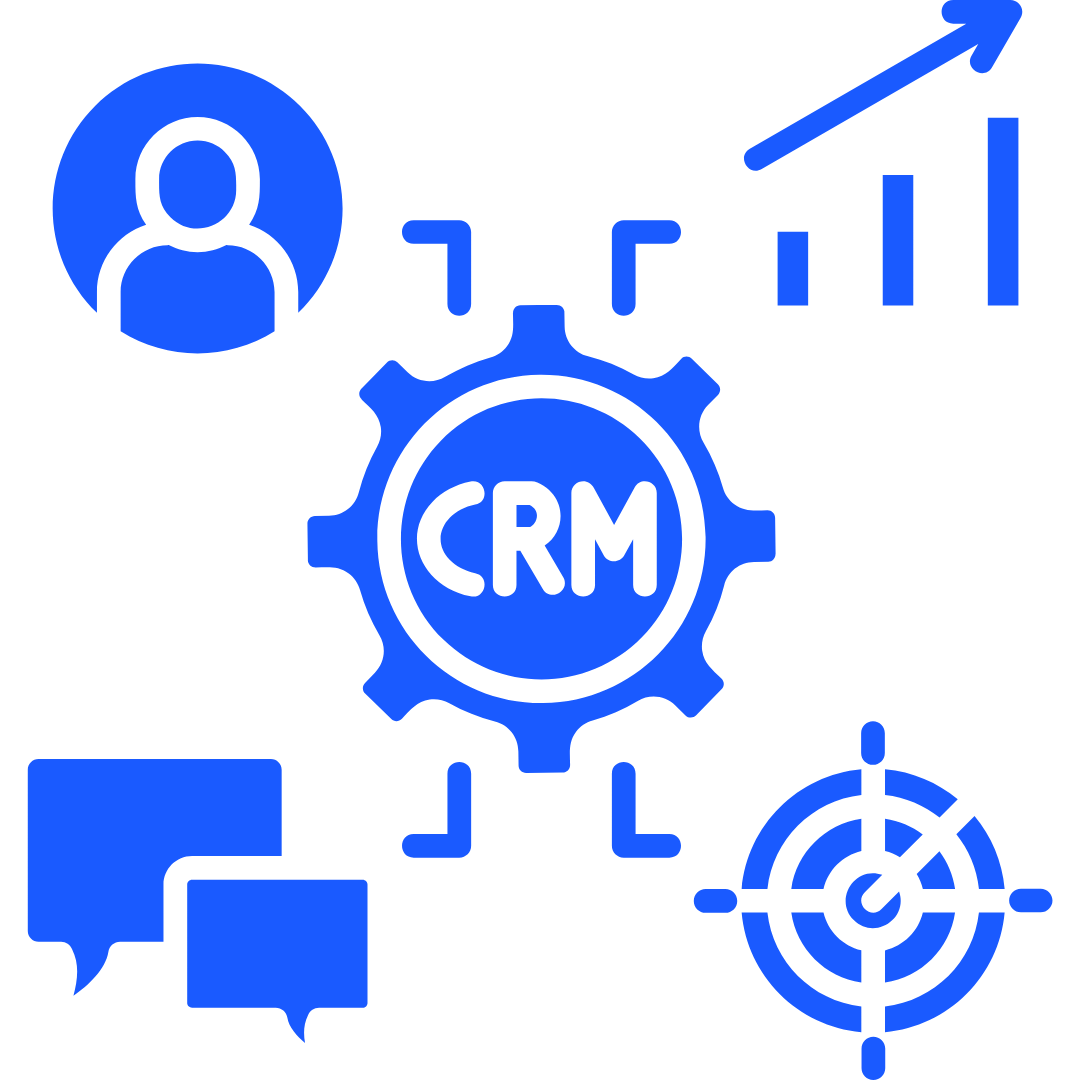
Logistics CRM
A Logistics CRM (Customer Relationship Management) system is a specialized tool designed for logistics and supply chain companies to manage their interactions with clients, vendors, and partners. It helps streamline operations, improve customer service, and optimize the management of shipments, deliveries, and logistics projects. This CRM focuses on enhancing communication, automating workflows, and improving efficiency within the logistics and transportation industry.
Key Features of a Logistics CRM:
-
Customer and Partner Data Management: Centralizes information about clients, suppliers, shippers, and partners, including contact details, past interactions, contracts, and service agreements.
-
Lead and Sales Management: Tracks potential customers and business opportunities, managing the sales pipeline from lead generation to contract finalization, and improving sales conversions.
-
Shipment and Delivery Tracking: Allows businesses to track shipments in real-time, providing clients with updates on the status and location of their goods, improving transparency and communication.
-
Route Optimization: Helps logistics companies optimize delivery routes for efficiency, reducing costs and improving delivery timeframes.
-
Order Management: Manages the entire order fulfillment process, from order receipt to dispatch, ensuring timely deliveries and accurate documentation
A Logistics CRM helps companies in the logistics and supply chain industries improve customer service, reduce inefficiencies, and optimize operations. By automating processes and centralizing data, logistics businesses can provide better experiences for their clients, streamline their workflows, and drive business growth.
